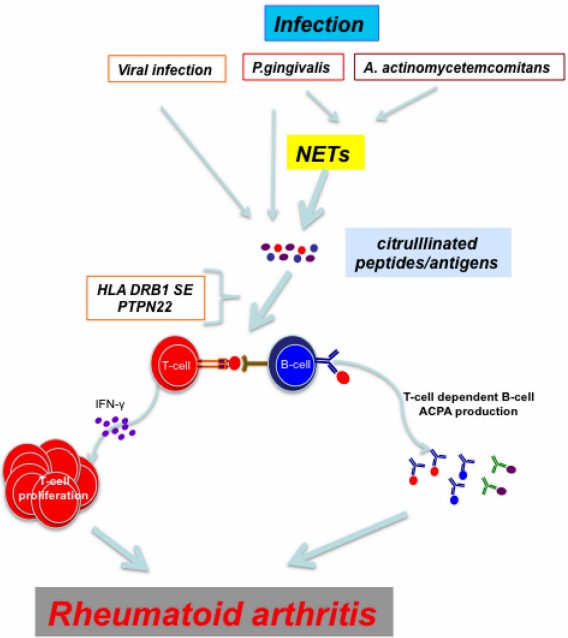NAA Services for Anti-Cyclic Citrullinated Peptides Antibodies (ACPA)
Creative Biolabs is capable to offer a number of high-quality NAA services with advanced platforms and extensive experience in NAA (natural autoantibodies) detection. Here, we can provide our customers with a wide range of anti-cyclic citrullinated peptides antibodies (ACPA) services for diseases diagnosis and therapeutic monitoring. We believe that our NAA services will be helpful for your projects.
Background of ACPA
ACPA is a type of autoantibodies that are directed against those citrullinated peptides and proteins. They exist in most of the patients suffering from rheumatoid arthritis (RA). Clinically, cyclic citrullinated peptides (CCP) are commonly used to detect these antibodies in patient serum or plasma (also known as anti-citrullinated peptide antibodies). During an inflammation response process, arginine residues can be enzymatically transformed into citrulline residues in proteins such as vimentin, by citrullination. If their shapes are altered significantly, the proteins will be regarded as foreign antigens by the self-immune system, thereby inducing an immune response. ACPA has been proved to be a kind of powerful biomarkers used in the diagnosis of RA at a very early stage.
The Role of ACPA in Rheumatic Diseases
RA is one of the most common types of autoimmune disease. It is caused when the immune system (the body’s defense system) is not working normally. RA causes pain and swelling in the wrist and small joints of the hand and feet. In general, RA is along with a variety of autoantibodies. Those autoantibodies can recognize autoantigens, including cartilage components, chaperones, nuclear proteins, citrullinated proteins, and enzymes.
ACPA is strongly associated with an increased risk of developing RA in healthy individuals and are found in the blood of healthy persons prior to clinical RA. Among those people who have RA, the presence of ACPA leads to more severe structural damage, radiographic progression and poorer response to therapy. Geneticists and epidemiologists believe that ACPA-positive RA is a homogeneous phenotype of severe RA. ACPA is strongly related to the HLA-DRB1 shared epitope and PTPN22, strong genetic risk factors of RA, and smoking, the strongest known environmental risk factor of RA. Individuals having the smoking habit and inherited HLA-DRB1 shared epitope genes may trigger RA-specific immune reactions to citrullinated peptides, leading to the production of ACPA and the occurrence of disease.
 Fig.1 Role of ACPA in the development of rheumatoid arthritis.1
Fig.1 Role of ACPA in the development of rheumatoid arthritis.1
What Can We Do about NAA?
Our NAA services can be performed with our well-established platforms and experienced scientists, include NAA detection, NAA profiling, NAA affinity measurement, NAA epitope mapping, and paratope mapping. A wide range of NAA products is also available for your choice.
Creative Biolabs is well-positioned to deliver a focused product or custom services to the research market representing the highest value targets for the diagnosis and prognosis of RA. We have extensive expertise and experience to meet customized requirements for the detection or profiling of ACPA. Please contact us for more information.
Reference:
- Sakkas, Lazaros I., et al. "The infectious basis of ACPA-positive rheumatoid arthritis." Frontiers in microbiology 8 (2017): 1853.

